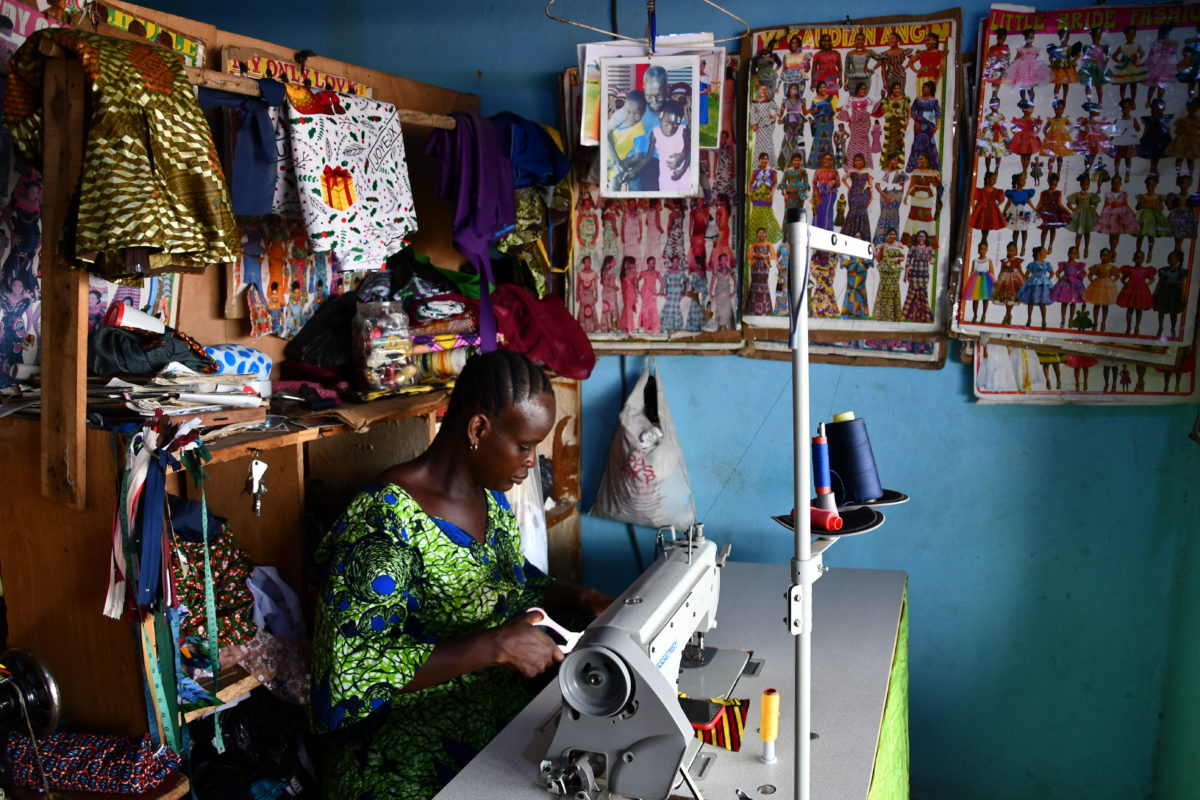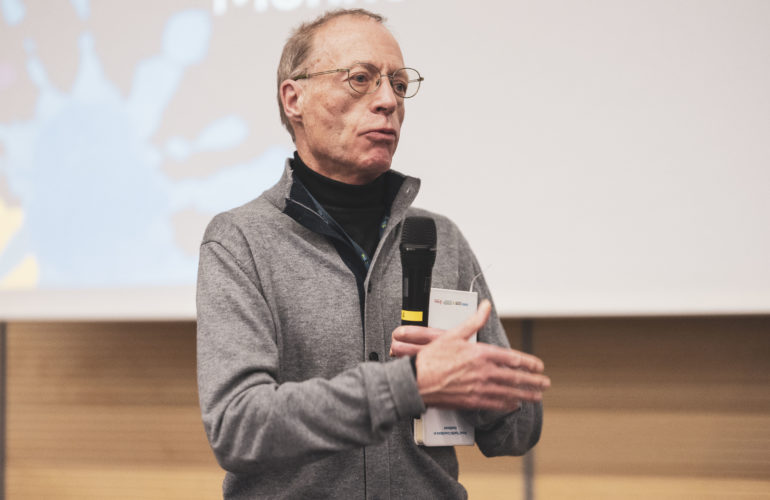Returning Hope in the Future
Once a destination for regional migrants seeking better economic opportunities or a stable life, the West African nation of Côte d’Ivoire has increasingly become a country of departure.

Since the turn of the century, political instability, civil unrest, and economic crises have pushed many young men and women to leave the country. However, a growing number of them later chose to return to Côte d’Ivoire. Many previously attempted to travel to Europe via irregular and dangerous migration pathways and often struggle to reintegrate into their communities upon their return. In response, in March 2023, the ICMC network launched a program to address the needs of returning migrants and assist them in the process of reintegration.
The program offers psychosocial assistance to help returnees handle the trauma they suffered during their journey, as well as the stigmatization and shame they feel for failing to reach Europe, training sessions to facilitate their social and economic reinsertion into their communities, and awareness-raising campaigns about the dangers of irregular migration. The program is a joint effort by the International Catholic Migration Commission (ICMC), its national member, the Episcopal Conference of Côte d’Ivoire (ECC), and its sub-commission for the Apostleship of the Sea, Migrants, Tourism and People on the Move. It was implemented by the sub-commission under the supervision of the ECC.
Rosalie, Nicole, and Pascale-Marie are three program participants who unsuccessfully attempted to journey to Europe over the last few years. Having spent their life savings on the road, they returned home with very little. However, thanks to the support and training they received, they have been able to reclaim their lives, launch their own businesses, and build a future for themselves in Côte d’Ivoire.
“The same money we make over there, we can earn here, too.”
A few years ago, Rosalie contacted a smuggler to help her travel from Côte d’Ivoire to Morocco, and from there on to Europe. Pooling her life savings, she managed to pay the first installment of the exorbitant fee he demanded. However, when she was unable to make a second payment, the smuggler became impossible to reach and seemingly disappeared, sending Rosalie back to square one with nothing to her name.
Although illiterate, Rosalie was able to participate in the ICMC/ECC joint training program, where she learned the basics of entrepreneurship, management, and accounting. Thanks to these newly acquired skills and financial support from the ECC, she purchased an industrial sewing machine and launched her own sewing business.
Rosalie started by herself, working in a small warehouse, but now has her own shop from where she operates and employs five people. “We stayed, and we succeeded,” she says.
“It is misery that sends us.”
Nicole returned to Côte d’Ivoire in 2017 after attempting to reach Italy via Libya, where she was incarcerated in a migrant detention center. There, she was exposed to theft and sexual violence, and experienced daily discrimination due to the color of her skin. Seeing her situation getting worse every day, she made the difficult decision to forgo her project and return to Côte d’Ivoire. “It wasn’t easy: you’re going on an adventure in search of some well-being and come back with nothing,” she says.
So when the ECC launched its program, Nicole enrolled in the entrepreneurship and financial management training session. Learning about marketing, saving, and how to generate income, even without any capital, Nicole was able to launch her own business. “The training taught me that it’s not just about money. With the potential you have within yourself, you can earn money. […] This really awakened something in me,” she recalls.
The program also provided her with financial support to obtain a booth from which she now sells produce.
“Together, we will build a strong Africa.”
Pascale-Marie first left Côte d’Ivoire to study and work in Morocco. She soon made new plans to travel to Europe when she understood that her reality there would be far from what she had hoped for. Those plans, however, would almost cost her her life.
After contacting a smuggler and making a first unsuccessful attempt to cross the Mediterranean Sea on an inflatable boat from Morocco, Pascale-Marie traveled to Libya, where she would try again just a few months later. This attempt would prove to be nearly fatal. Just a few hours after departure, the boat capsized, leaving Pascale-Marie stranded in the open sea. Fortunately, she was spotted by local fishermen who rescued her and took her back to shore. Realizing that reaching Europe was not worth losing her life, Pascale-Marie decided to return to Côte d’Ivoire.
Once home, she enrolled in the ICMC/ECC entrepreneurship and financial management training program, learning the basic skills she needed to run her business. She also credits the ECC for the support she received to help her overcome the stigma that returnees face. “As a returning migrant, reintegration is not easy. It’s difficult. People look at you strangely, and you are a bit cast aside. [The ECC] really helped me,” she says.
Now the owner of a spices and herbs booth in Abidjan, Pascale-Marie says she learned she did not need to leave her home country to be successful, and shares that same lesson with her community, pleading for her brothers and sisters to remain here and invest in their country. “I tell my brothers and sisters to stay in Africa. Together, we will build a strong Africa, a developed Africa,” she says.



